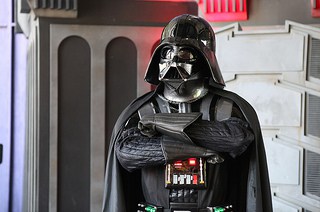For years, Csanad Szegedi was a leader and member of Hungary’s anti-Semitic Jobbik Party. His strongly nationalist views played a part in his rise to prominence, and Jews were among his favored targets. Until recently, that is.
In a twist straight out of Star Wars, it turns out that the Darth Vader Szegedi has fought against for years is his father after all. (Actually, to be more precise, it’s his mother.)
Szegedi has discovered that his mother is Jewish by birth, which under Jewish law makes him a Jew, too. Not only that, but his grandmother survived Auschwitz and his grandfather a Nazi forced-labor camp. This rude awakening seems to have knocked Szegedi off his horse, leaving him in a state of serious soul-searching. He recently vowed to make a pilgrimage to Auschwitz and pay homage to his ancestors.
But maybe this ironic twist in Szegedi’s life can be a cautionary tale for all of us. After all, in waging war on others we are often enough just waging war with our own perverse self-image. When we demonize others, we merely take a despised image of our own self, suit it up in dark armor, and arm it with a lightsaber to do battle. History is full of people who have hated some essential part of themselves and used self-hatred to justify oppressing those who reflect that same trait. And yet it’s only when our true identity bursts through the clouds of self-hatred and self-deception that we begin to see and love our self in others.
In other words, hate and love are always multidimensional. As the late 18th century German scientist Georg C. Lichtenberg once said, “I am convinced we do not only love ourselves in others but hate ourselves in others too.”



